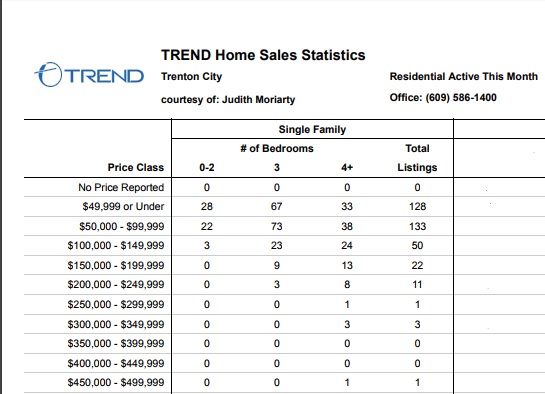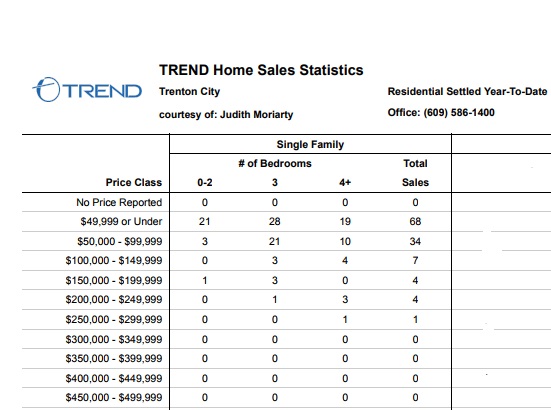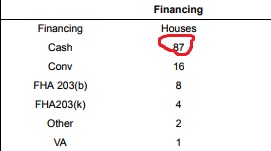All seven Trenton mayoral candidates appeared on the same dais yesterday, in a town hall event produced by The Trentonian, and held at the downtown campus of Mercer County Community College. It was billed as “a debate,” but like most events labeled that way, it really wasn’t. Limited by the rather confusing and frustrating format, candidates were allowed one minute opening statements, and one minute answers to questions addressed at random to no more than two or three candidates at a time. One round of questions allowed the candidates only single word yes-or-no answers. There were no opportunities for the candidates to address each other, and none of them chose to even reference
So, if you are of a mind that all of Trenton’s issues can be boiled down to 60-second soundbites, you would have been in your element yesterday. If, however, you may have hoped against hope that the format would allow a little more substance, you’d have been disappointed.
The event was both streamed live on the website of the Trentonian; it was also recorded, and can be found posted in today’s online version of the Trentonian story on the event. I won’t discuss what each candidate was asked yesterday, nor their answers. A summary of that can be read in the Trentonian, and you can see the whole thing on video. One tip, though: the video runs 2:49:43, but the actual event doesn’t begin until the 1:10:00 mark.
There were two main issues I had wanted to hear discussed in at least some detail, but I was disappointed that they were both raised – by audience questions, not by the event moderators – only close to the end of the event. As a result, these two topics were only addressed by one candidate each.
The first question was, as I discussed in my last post, the crisis at the Trenton Water Works (TWW). One candidate mentioned clean water as a priority in his opening remarks, but the issue was not raised again until very late in the process. Unfortunately, the question went to two-term At Large Council member Alex Bethea. At 2:36:20, Mr. Bethea was asked for his policy proposals to deal with questions about the water quality and administrative leadership at TWW and its riverside filtration plant. I will quote his entire answer here. Remember as you read this, or even better watch this, that this answer was given by a man who has been a member of Trenton City Council for eight years, and an educator for many decades before that!
We’ve had some issues with our water situation over at the plant, and it’s still unclear about who, what, when. But let me say this. Our water situation is very serious, and I will take that very serious. And we will have top quality water as we used to have before this debacle became apparent. And we will change that.
Now, one of the things that we can do is reach out to the high school, and we can fill those so-called “vacancies.” And we should have had them filled twenty years ago. We’re a little late getting to the party. But, we can do this! And we have to make sure our residents are a part of the solution. And we can do this.
And I don’t see a problem with getting in, assessing that situation, and correcting it within the first 90 days. Thank you.
Got that? All of the problems of the Water Works – all of the Quality violations, the late projects that have led to no fewer than three Administrative Consent Orders and now two contracts with third-party engineering firms to provide several licensed operating personnel – you know, the “who, what, when” – can be solved in the first ninety days of a Bethea Administration. Kids right out of high school can fill these “so-called vacancies.”
Ladies and Gentlemen, I give you Alex Bethea, talking out of his ass for eight solid years. And the Trenton Education Association gave this fool their endorsement?!?! Probably because they figure they could get anything they want from him! The rest of us, though, should be very afraid to think Alex Bethea could end up the latest in the recent line of mayors including Doug Palmer, Tony Mack and Eric Jackson.
The other issue that barely got any attention was that of the city’s local property tax burden and the recent tax revaluation of residential and commercial properties. No questions asked by the moderators directly referenced this problem. The closest the moderators came was a question posed to Walker Worthy, Paul Perez and Annette Lartigue. They were asked how they would spur more small business in Trenton. Not, mind you, support small businesses that were already here and struggling. Nope, they were asked, at 1:31:00 how they would bring in new small businesses.
It wasn’t until the end of the session that we returned – however very briefly – to any discussion of property taxes. Another audience-written question, at 2:37:38, asked Assemblyman Reed Gusciora how he would finance his agenda. He initially answered, “Go to the government.” He described himself as a new mayor who would not have to be introduced the new Governor, Lieutenant Governor, or head of the NJ Department of Environmental Protection, having worked with them, or endorsed them, for a long time. And then, for the only time anyone went there during this event, he said,
We just went through a revaluation. There were some losers and some winners. But the State has to kick in [additional revenues]. Fifty percent of Trenton is tax-exempt properties, and unless they make up for that, we’re going to have to go back to our own residents.
And that was it, folks. An issue that affects everyone who lives or works here has, throughout the entire election cycle so far, has been discussed about one-tenth as much as the pending legalization of marijuana. Disappointing is the very, very mildest word that could be used here. I am disappointed in all of the mayoral candidates to address this with the attention the matter deserves.
Remember, the process that Mr. Gusciora described as producing “some losers and some winners” saw thousands of commercial and residential property owners getting revaluations that doubled and tripled their taxes. At the other extreme, many other residential properties were revalued at reductions of 60% to 80%, with massive tax reductions. The geographic impact of these changes were highly localized, with West Ward neighborhoods such as Hiltonia, Glen Afton and Berkeley Square getting much higher tax bills and East and South Ward neighborhoods getting smaller ones.
Back in January of 2017, when the first revaluation results became available, I speculated about what the citywide impact might be:
Who in the world will buy Trenton property at anything close to current market prices that come with a property tax burden so astronomically high? We already are burdened with some of the highest property taxes in New Jersey, and the value we get for those high taxes is abysmally low. If these tax valuations stand, sale prices for many neighborhoods in town will collapse. This will probably result in increases in foreclosures and abandonment in neighborhoods that – so far – have managed to avoid too many of either.
We are now starting to see some of the initial impact of that revaluation reflected in the Trenton Real Estate market. I have the good fortune to be married to one of the leading residential real estate agents in New Jersey. Judy has provided me with some current information about current residential properties (single-family homes) offered for sale, as well as closings, for the first three months of 2018. She has data for Condos as well, but since only only a handful of those show up in the data, and are economically insignificant, I have not included them.
First let’s look at properties offered for sale as of the end of March, as compiled in the TREND MultiListing Service.
We see here a total of 350 active properties for sale in the City, their total value (not seen here) totaling $29.1 Million Dollars, the vast majority of them offered for under $100,000. That’s where the sales have been happening as well. Here’s a table of settled (sold) properties in the City for the first three months of 2018.
This table shows 118 properties, totaling $7.094 Million (not seen on the chart), were settled in the first quarter of 2018. Here again, the large majority of properties sold were valued at $100,000 and under.
In fact, the sales activity for the lower-priced properties far outpaced those in the higher range. As a percentage of properties being offered, the number of settled properties under $100K is 40% of those offered for sale. The comparable rate for houses over $100K is less than half, 18%.
According to Judy, the following is a key piece of information, showing how the purchases were financed.
Of the 118 properties sold so far in 2018, by far the largest of them – 87 – were purchased for Cash, as opposed to the other main sources of financing – Conventional mortgages, Federal Housing Administration, Veterans Administration, or Other.
According to Judy Moriarty, a Cash Purchase is one mark of a real estate investor purchasing the property, not an owner-occupant.
What’s the conclusion here? Based on the data so far, it looks like the most active sector of residential Trenton Real Estate sales is in those houses whose value are under $100,000. Those residences are largely in areas that benefited greatly by the lower assessments made last year, and their lower tax bills.
These houses are selling at roughly double the rate of more expensive houses. And their method of financing suggests they are being sold to investors who, in Trenton, typically have operated them as rental properties.
To the extent that any of them spoke about such things yesterday, the candidates were uniformly opposed to more outside property investors taking more control of Trenton’s residential market, creating more renters and crowding out owner-occupants.
Yet, the very policies and actions taken by the City over the last four years – chief among them the disastrous revaluation – are making this trend worse, and more likely into the future. We are now seeing this in the data.
If you, as Judy and I do, own a property worth more than $100,000, you’re basically SOL. You’ll have one hell of a time selling it, in large part – I speculate here, but base it on the data – to the greatly increased property tax bill, and the poor value of the services we get for our money.
In December of last year, I wrote – and presented to Council – that a homeowner with a residence in Trenton worth about $210,000 will get socked with a tax bill of $10,000. In other cities, the burden is a lot lighter on homeowners. In New York City, for example, you wouldn’t pay a tax bill that high unless your property was worth $almost $850K. Even here in New Jersey, your house in Newark would have to be worth $468K before your tax bill would be five figures.
Heavily owner-occupied neighborhoods such as Hiltonia, Glen Afton and Berkeley Square are, in short, getting screwed. So, to hear a candidate yesterday say, as Reed Gusciora (an owner living in Hiltonia, by the way) did, that if the State doesn’t significantly assist the City of Trenton by upping its fair share of payments in lieu of taxes, “we’re going to have to go back to our own residents,” with greater taxation, is pretty scary.
At some point, homeowners in those neighborhoods will start walking away from their properties. They won’t sell at amounts their owners will need to recoup to break even, and price cuts will be forced by what new buyers there may be, to offset the crushing tax burdens.
Have we heard ANYTHING about that yet, at length, by our candidates for Mayor. Nope, not nearly enough. This is likely the only chance we’ll have to be heard on this matter for the next four years. Perhaps during the inevitable run-off election we can get the final two candidates to talk about this?
For longer than sixty seconds, maybe??


